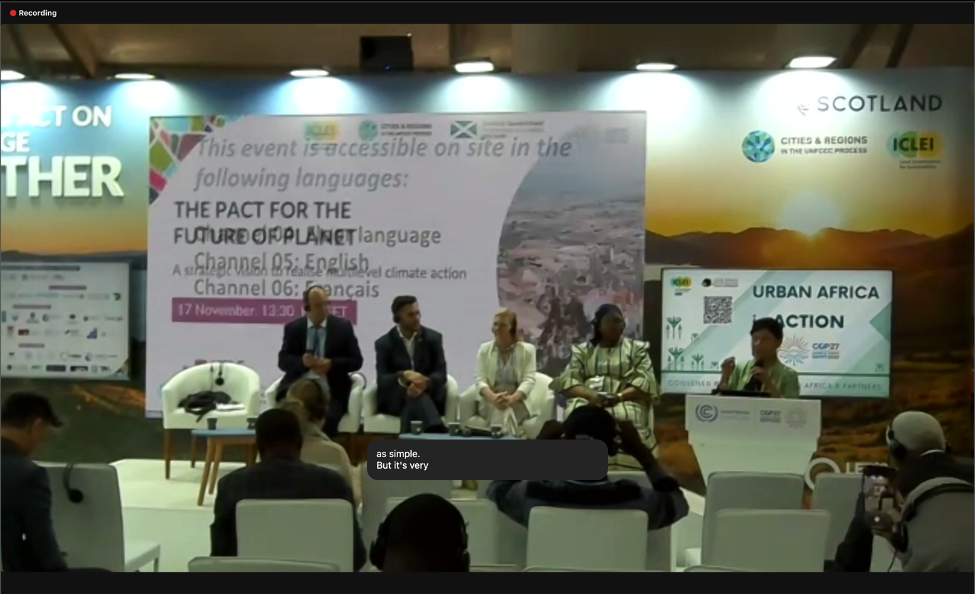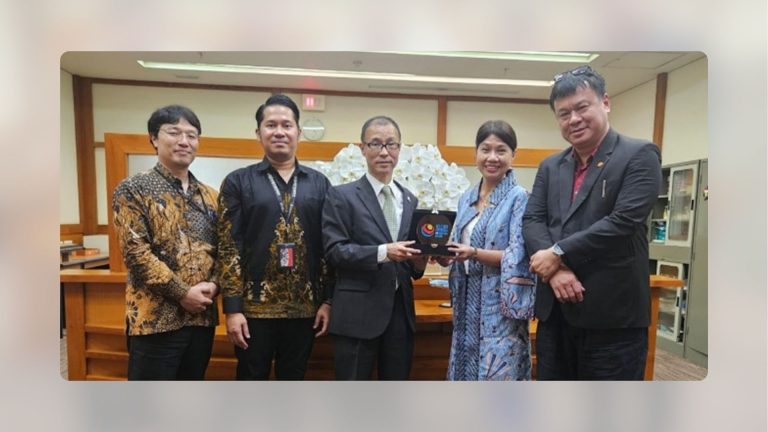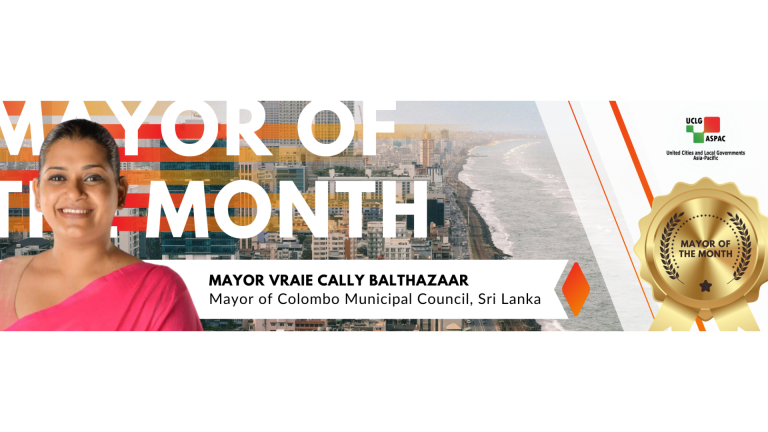The COP27 in Sharm El Syeikh, Egypt, may have ended in November 2022, but the outcomes and important next steps are more important than ever now that 2023 has begun.
United Cities and Local Governments (UCLG) recognises this, and the Pact for the Future, the key outcome document of the 2022 World Congress, has included inclusive climate action as one of the organisation’s strategic priorities. To address global challenges such as climate change, harnessing local solutions is a critical strategy, which the Pact refers to as multilevel climate action.
To bring in some context, the UCLG Pact for the Future declaration adopted at the 2022 UCLG World Congress in Daejeon, South Korea shines in the spirit of the municipalist movement that aims to create meaningful and just change in the future of cities all around the world based on “caring, sharing, and solidarity”. It is divided into three sections or axes: People, Planet, and Government, with a shared vision of addressing climate change through mitigation and adaptation efforts, as well as a call to reconsider our values as human beings who care for one another and the planet. As a result, the Pact for the Future prioritises developing nature-positive pathways and seriously addressing transactional equality.
COP27 was also the first time that Parties met in person to discuss actual implementation and better methods of capacity-building in order to achieve the Paris Agreements. Financing is also an important consideration when thinking globally and acting locally, and UCLG discussed how the Pact for the Future of Planet as a pathway to localising these goals through cross-sector collaboration during a side-session at the COP27 titled The Pact for the Future of PLANET: a strategic vision to realise multilevel climate action.
Dr. Bernadia Irawati Tjandradewi, UCLG ASPAC Secretary General, responded by encouraging local governments and the general public to be at one with nature when making personal and legal decisions for the better. Dr. Bernadia believes that a more holistic understanding of climate change is essential for human well-being and the foundation of sustainable and equitable economies. “A good concept is healthy ecosystems, and we aim to coexist with nature in a way that does not harm and respects it,” she said.
Dr. Bernadia concluded her opening remarks by reminding attendees of the power of cities, particularly intermediary cities, in advancing the Pact for the Future of the Planet alongside global efforts to achieve the SDGs. Multilevel climate action, for example, will benefit other development sectors such as food security and food systems. “We’ve seen through COVID-19 that local governments are on the frontlines of meeting citizens’ basic needs, so the Pact for the Future is a good guideline,” Dr. Bernadia added.
According to a representative from a Russian city, more than half of the world’s population lives in cities, which face typical urban problems such as air and water pollution, as well as a lack of green spaces. To address this, he urged participants to begin accounting for action, which also includes raising awareness in order to change people’s mindsets about navigating the world around them in a more sustainable manner.
One approach would be to approach the youth, whom Gambia’s Mayor, Rohey Malick Lowe, regards as game changers, including women, as there is no resilient community without them. As a result, it was suggested that the same values of equality and care be applied to climate action as they are in the Pact for Humanity. That being said, systems change is equally important in terms of poverty reduction and hunger eradication, as they can protect those who are disproportionately impacted by climate change.
In the context of South or Latin America, an ICLEI representative stated that approximately 20% of people in South American cities live in informal settlements, and people living there are the first to be affected by extreme events, making the link between poverty and climate change even more apparent when floods, heavy rain, irregular heatwaves, and other natural disasters occur. “To address this, we must strengthen the link between local climate services and urban climate services,” he said.
Towards the end of the session, speakers brought together the agreement of more seriousness in lobbying for localisation at climate finance. Recognising the importance of cities will always be part of the municipalist movement, especially in national policies and contributions related to climate action. Furthermore, with local governments fully supported, climate justice can actually be achieved.











